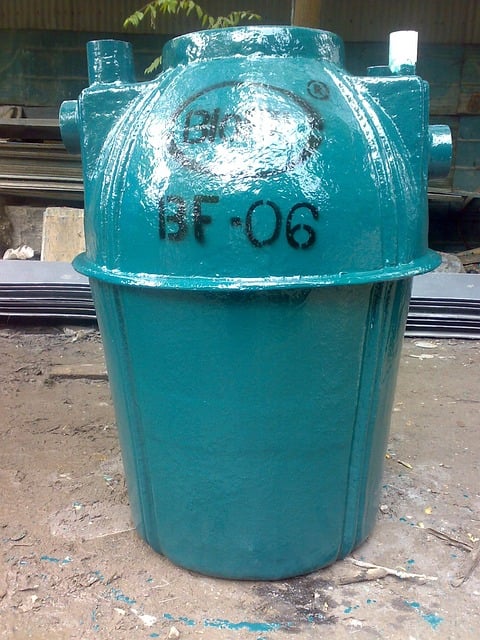Regular septic system maintenance is crucial for preventing failures, extending tank lifespan, and avoiding costly repairs. This includes annual inspections, pumping every 3-5 years, managing water usage, and disposing of only biodegradable materials to maintain optimal bacteria levels and prevent clogs. Prompt attention to signs like persistent clogs or unusual odours ensures a hygienic living environment.
“Unraveling the mysteries of septic system failures and empowering homeowners with preventive strategies is the focus of this comprehensive guide. Understanding common causes behind these setbacks is key to ensuring smooth operation and longevity of your septic system. We’ll explore environmental factors, improper usage, and maintenance oversights that can lead to disruptions. Additionally, discover practical tips for proactive care, including regular inspections, proper waste disposal, and system monitoring. Learn when it’s time to involve professionals for repairs or replacements, ensuring optimal septic system maintenance.”
- Understanding Septic System Failures: Common Causes
- Preventive Measures for Maintaining Your Septic System
- When to Call a Professional for Repair or Replacement
Understanding Septic System Failures: Common Causes

Septic system failures are common issues that can arise due to various factors, often stemming from inadequate maintenance or misuse. Understanding these causes is crucial for homeowners and property managers alike to ensure smooth operation and longevity of their septic systems. One of the primary reasons for failure is lack of regular septic system maintenance. This includes not scheduling professional inspections at least once a year and not performing necessary pumping every 3-5 years, depending on usage.
Other common causes include introducing non-biodegradable materials into the system, such as chemicals, grease, or foreign objects that can clog pipes and disrupt the natural balance of bacteria needed for proper decomposition. Excessive water usage, often from high-flow fixtures or leaks, can also lead to overflows and system damage. Proper education on what can and cannot be disposed of into the septic tank is essential to prevent these issues. Regular maintenance and responsible usage practices are key to preventing costly repairs and ensuring the continued efficiency of your septic system.
Preventive Measures for Maintaining Your Septic System

Regular maintenance is key to preventing septic system failures. This includes annual inspections by professionals who can assess the overall health of your system and identify potential issues early on. During these visits, they should check for any leaks, damage to pipes, or blockages in the drain field, as well as ensure proper bacteria levels for optimal waste breakdown.
Additionally, homeowners can take proactive steps like avoiding disposal of non-biodegradable materials into the system, such as grease, coffee grounds, and certain foods that can clog pipes. Limiting water usage during peak times and spreading out large amounts of water over time also helps prevent excessive strain on the septic tank. Regular pumping (typically every 3-5 years) is another critical preventive measure to remove solid waste buildup and maintain the system’s efficiency.
When to Call a Professional for Repair or Replacement

Knowing when to call in a professional for your septic system repairs or replacements is crucial for maintaining optimal health and hygiene on your property. While regular maintenance can often prevent major issues, there are signs that indicate it’s time to seek expert assistance. If you notice persistent clogs, unusual odours, or slow drainage in your home, these could be early warning signals of a septic problem.
Additionally, if you see any pooling water around the septic tank or evidence of leaks, it’s essential to contact a professional promptly. Frequent backups, reduced water pressure, or even visible damage to the septic system are further reasons to initiate repair or replacement discussions. Regular septic system maintenance can help extend the lifespan of your tank and prevent costly, inconvenient emergencies.
Regular septic system maintenance is key to preventing failures. By understanding common causes like clogs, excess water, and bacterial imbalances, homeowners can take proactive measures such as avoiding disposable products, pumping tanks annually, and monitoring usage. While some issues may require professional intervention, early detection through regular checks can significantly reduce costs and environmental impact. Prioritizing septic system maintenance is a crucial step towards ensuring a healthy, sustainable home.
